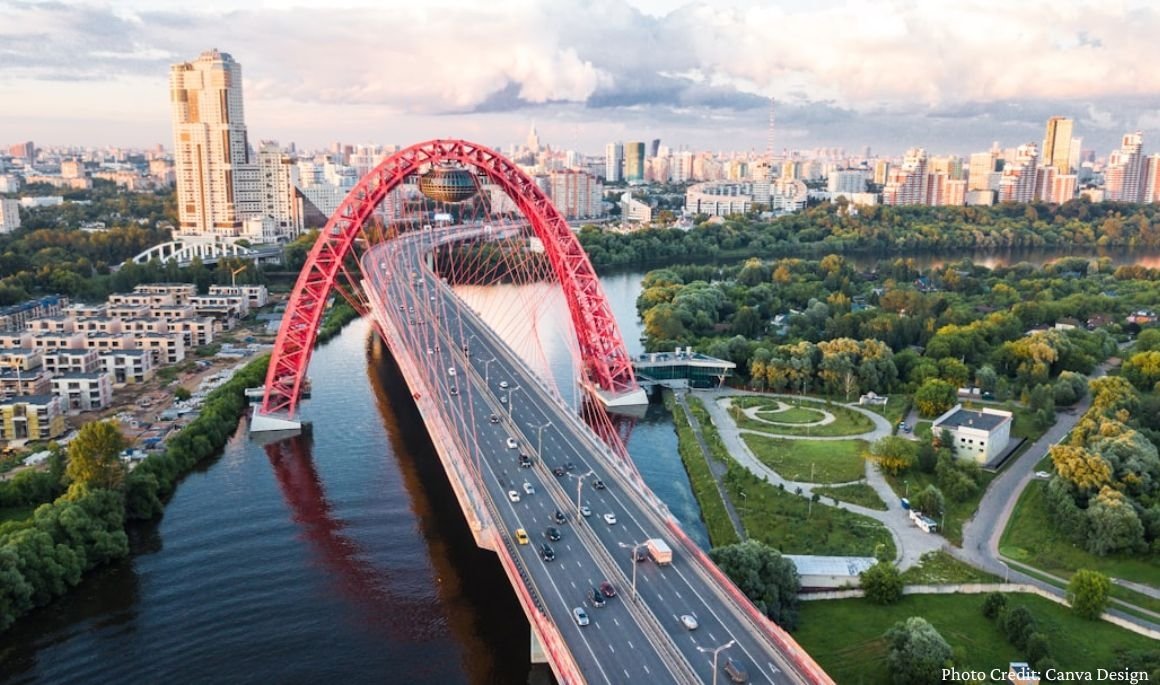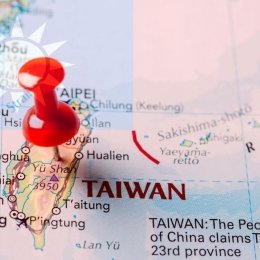- Norwich Blogs
- Blogs
- Sins of the Father
Sins of the Father
By David Dusseault
This article examines the complexities of policy decision-making in international relations. Dusseault reflects on his personal experiences in the Soviet Union and Russia during the late 1980s and early 1990s, observing the end of the Cold War and the subsequent socio-economic challenges. He discusses the gap between policy intentions and outcomes, highlighting instances where decisions, despite being well-intentioned, led to unintended consequences. The article emphasizes the importance of understanding the long-term effects of policy decisions and the need for careful consideration in international relations.

Disclaimer: These opinion pieces represent the authors’ personal views, and do not necessarily reflect the official policies or positions of Norwich University or PAWC.
“Policy decisions in international relations frequently have a long-lasting effect on the world order, shaping the lives of millions. Often acting under pressure and severe time constraints decision-makers must rely on their own expertise and the best expertise available. And so, despite striving for a more peaceful and prosperous world, policy failures are all too common.”[1]
The question put before us is why, despite the sheer preponderance and scope of information available to us now on a 24/7 basis, can’t we make more insightful policy decisions and avoid less-than-desirable events from occurring on a regular basis.
As a classic illustration of the gap between intentions and results, former Prime Minister of the Russian Federation Viktor Chernomyrdin gave his assessment on why the country’s early banking reform ultimately failed to protect the savings of millions of Russian consumers from hyperinflation, “We aspired for better, but it turned out as it always does.”[2]
In their expert comment for Chatham House, Kramer and Muttreja[3] identify a gap between policy outcomes and the theory underpinning any adopted approach's original logic. That gap is occupied by cases in which decision-makers ignore sound academic policy advice or those where academics themselves “err on the side of their own self-importance,” thus making it more likely for a policy to fail to produce the initially intended set of desired outcomes.
During my professional journey, I was on the ground to personally experience such anti-climactic endings to events despite the best intentions. First in 1988, then in 1990, and once again in 1994, I was a wide-eyed exchange student in the Soviet Union and then the Russian Federation, observing the end of the Cold War, the collapse of the U.S.S.R. and then the socio-economic and institutional chaos that ensued during the Yeltsin period.[4]
As a researcher then acting professor of Russian Energy Policy at the Aleksanteri Institute, University of Helsinki (2004-2010), I had a front-row seat as the promise of political stability and economic growth derived from Russia’s abundance of natural resource wealth became hindered by increased government oversight, the lack of timely investment and domestic market development[5] attributable to Putin’s bureaucratic power vertical[6] which did away with the need for alternative voices in favor of a small circle of trusted officials fiercely loyal to the presidential agenda.
Finally, as the Finnish natural gas importer Gasum’s Senior Market Analyst (2011-2015), I saw such trends continue as Russia’s energy trade with Europe became subject to trade wars with crucial transit countries Belarus and Ukraine, legal challenges to the long-term contractual agreements from the European courts, and the eventual collapse of the Soviet era energy trade model.[7]
It's not Russia that serves as the sole commonality here. Still, as Kramer and Mutteja suggest, it’s also the sense that a good part of the negative consequences of global events, such as the ones I witnessed, could have been mitigated if not outright avoided if policymakers and analysts were better prepared to interpret global circumstances with more finesse despite all the obvious time constraints and material challenges.
Observers and practitioners have been too fixated on the ability of one agent (state, corporation, or social institution) to maximize its returns at the expense of others within a policy space. In fact, the existence of a clear hegemon at the top of the global hierarchy is a historical rarity.[8] Additionally, zero-sum results derived from competition among various agents are increasingly unlikely owing to the complexity of interactions among a diversified set of agents, which contribute to a higher degree of unpredictable outcomes emanating from the contemporary international system.[9]
Janice Gross Stein’s work focuses on great power competition and asserts that the concept of hegemony, a core element that defines the international order, does not take a consistent form. Instead, the power wielded by one state or another is also a product of a changing set of historical circumstances that limit or facilitate a state to achieve or even maximize policy goals.[10]
Despite any preponderance of material advantages amongst agents, military economic or otherwise, a state is only as influential as the rest of the system allows it to be considering a fluid set of rules, norms, and values that comprise the international system at any given time. Therefore, Stein warns of the consequences associated with a “single narrative” to provide policy solutions for avoiding the worst outcomes as products of competition among rival interests globally.[11]
All the events I mentioned earlier stand as exemplary illustrations of just how such single-mindedness on the part of a country’s leadership has the potential to bring not only an individual state but the international system to the brink of yet another strategic catastrophe, especially when that state’s elite feel their position is under threat from rival interests either perceived or actual.
Russia’s current position within the international system is one of an underperforming regional player; a former great power while still possessing significant military assets, vast economic resources, and a resilient political system on the one hand, yet on the other, it lacks both the values and governmental capacity to legitimize its actions to its population and a wider audience of the international system’s agents.[12]
To make matters more complex, Russia’s leadership is predominantly composed of the cohesive bureaucratic elite that espouses a worldview obsessed with seeking a way back to a mythical time of territorial security and unquestionable international prestige in response to what they see as rising economic, political and social interference in Russia’s traditional sphere of influence on the part of a hostile west.[13]
Russia now faces a situation in which GDP is hardwired to war production; alternative revenue streams from the oil and gas trade are subject to international sanctions; the country’s financial systems have been isolated from many of the world’s major capital markets, while the state’s capacity to garner material and human resources domestically in support of current foreign policy objectives is wavering.
In conclusion, evidence suggests that conditions within the international system have bypassed the Kremlin’s narrow-minded strategic thinking, making foreign policy goals hopelessly obsolete. Putin now finds himself in an unenviable position occupied by his predecessors, one in which ambitions to increase the state’s territorial security, political prestige, and economic might at the expense of historical rivals have outstripped the state’s limited capacity to provide the material means and wide-spread legitimacy to fulfill the Kremlin’s desired objectives.
By repeating the sins of his forebearers, Putin may condemn Russia unwittingly to the fate he was trying to avoid in the first place, a future in which Russia’s economic resources, intellectual capital, and cultural wealth will be squandered haphazardly. Instead of attempting to conceive a more enlightened vision for the country, the Kremlin may have to settle again with the usual disappointing historical result.
David Dusseault, PhD is an independent researcher and expert on Russian domestic political economy. As a graduate of Norwich University with a bachelor’s degree in international studies (1992), he received a Master of Arts in International Relations (2000) and a Doctorate in Political Science (2010) from the University of Helsinki in Finland. After completing his studies, David held various positions both in academia and the corporate sector, most notably as Acting Professor for Russian Energy Studies at Aleksanteri Institute, University of Helsinki, Finland (2009 -2011), Senior Market Analyst for the Finnish natural gas distribution company Gasum OY, Espoo, Finland (2011-2015) and most recently, Professor of International Relations, School of Advanced Studies, University of Tyumen, Tyumen Oblast, Russian Federation (2018-2022).
[1] Kramer J. & Muttreja, I. (2022). International Relations: The how not to guide. Chatham House Expert Comment. Available at https://www.chathamhouse.org/2022/10/international-relations-how-not-guide (Accessed 5 August 2024)
[2] Manaev, G. (2019). Most Famous Russian Quotes Explained. Russia Beyond. Available at https://www.rbth.com/history/330247-most-famous-russian-quotes-explained-1 (Accessed on 5 August 2024)
[3] Kramer J. & Muttreja, I. (2022). International Relations: The how not to guide. Chatham House Expert Comment. Available at https://www.chathamhouse.org/2022/10/international-relations-how-not-guide (Accessed 5 August 2024)
[4] For a comprehensive review of this period, see Reddaway, P. & Glinski D. (2001): The Tragedy of Russia’s Reforms: Market Bolshevism against Democracy US Institute of Peace Washington, D.C.
[5] See Hendersen, J et als. (2024) Outlook for Russia’s oil and gas production and export. OIES Paper: NG 189. Available at https://www.oxfordenergy.org/wpcms/wp-content/uploads/2024/03/NG-189-Outlook-for-Russias-oil-and-gas-improved-resolution.pdf (Accessed on: 18 August 2024)
[6] See Cherkasov, P. (2021) The Beginning of the Putin’s Era (2000-2008). World Economy and International Relations, 2021, vol. 65, no. 5, pp. 117-127. Available at https://doi.org/10.20542/0131-2227-2021-65-5-117-127 (Accessed on 6 August 2024)
[7] See Mitrova, T. (2016) Shifting Political Economy of Russian Oil and Gas, A report of the CSIS Energy and National Security Program. Available at https://csis-website-prod.s3.amazonaws.com/s3fs-public/publication/160323_Mitrova_RussianOilGas_Web_0.pdf (Accessed on 6 August 2024)
[8] Gross Stein, J. (2022) How not to think like a hegemon International Affairs, Volume 98, Issue 5, September 2022, Pages 1615–1633, https://doi.org/10.1093/ia/iiac054 (Accessed on 18 August 2024)
[9] For a discussion from the private sector perspective see Mauboussin, M., & Sullivan, T. (2011) Embracing Complexity. Harvard Business Review. Available at: https://hbr.org/2011/09/embracing-complexity (Accessed 24 July 2024) & Sargut, G., & McGrath, R. (2011) Learning to live with Complexity. Harvard Business Review. Available at https://hbr.org/2011/09/learning-to-live-with-complexity (Accessed 24 July 2024)
[10] Gross Stein, J. (2022) How not to think like a hegemon International Affairs, Volume 98, Issue 5, September 2022, Pages 1615–1633, https://doi.org/10.1093/ia/iiac054 (Accessed on 5 August 2024)
[11] Gross Stein’s thoughts here echo the sentiment outlined in Hollinger, Peggy. “How companies draw on science fiction: Volkswagen, Hershey’s and Capital One are among the companies hiring futurists.” Financial Times. Available at https://www.ft.com/content/f603e438-a4ba-11e7-9e4f-7f5e6a7c98a2 (Accessed on 29 July 2024)
[12] See the Lowy Institute Power Index 2023 Edition. Available at https://power.lowyinstitute.org/countries/russia/ (Accessed on 18 August 2024)
[13] Hill, I. (2023) Russia\’s invasion of Ukraine: Why and why now? The Interpreter. Available at https://www.lowyinstitute.org/the-interpreter/russia-s-invasion-ukraine-why-why-now (Accessed on 6 August 2024)



